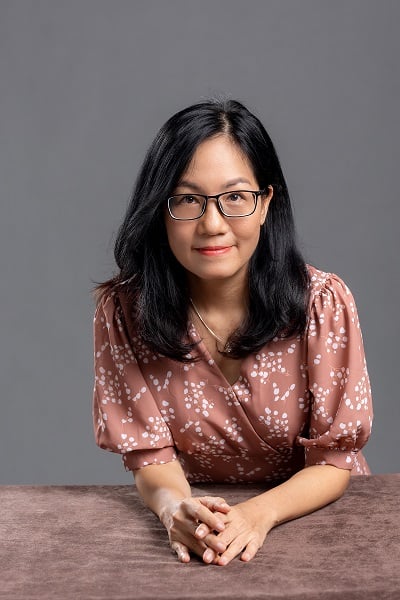 |
|
Nguyen Thu AnhWoolcock Institute of Medical Research in Vietnam
“The inclusion of two Australian professors among the recipients of the Ho Chi Minh Award in science and technology underscores the robust and enduring collaboration between the people of Vietnam and Australia, as well as the scientific communities of both nations.” |
Trust, resilience, efficiency and mutual respect are the cornerstones of Professor Nguyen Thu Anh's depiction of the Australia - Vietnam cooperation.
An epidemiologist and social scientist, Dr Thu Anh is currently the Country Director of Woolcock Institute of Medical Research in Vietnam, which is affiliated with the University of Sydney, Australia.
The most extensive and successful collaborative between Woolcock and its Vietnamese partners is research on tuberculosis (TB), which receives funding from the Australian government.
The team of researchers has found a more effective, shorter and safer treatment regimen, as well as a public health intervention that contributes to ending TB in the community, changing the global perspective on addressing tuberculosis. Thu Anh says: “The research, co-authored by Vietnamese and Australian researchers, has been published in leading global medical journals and contributed to policy changes not only in Vietnam but also many other countries, saving thousands of lives. WHO has also included these findings in their global guidelines on tuberculosis infection prevention and control.”
This research project received a Ho Chi Minh Prize for Science and Technology in 2022. The research team consists of 23 respiratory scientists, including three from the Woolcock Institute of Medical Research in Vietnam: Professor Thu Anh and two Australian professors, Greg Fox and Guy Marks.
In 2020, amid the Covid-19 pandemic, Dr Thu Anh made a proposal to the Australian Department of Foreign Affairs and Trade (DFAT), recommending their assistance in facilitating a study conducted by Woolcock Vietnam to investigate the most efficient strategies for responding to Covid-19. The funding amount was only 370,000 AUD but was exceptionally flexible and effective. When there was insufficient understanding about the status of the Covid-19 pandemic in Vietnam, Woolcock pioneered and provided consultancy to Vietnam’s Ministry of Health, government agencies and hospitals. They assessed the evolving scale of the pandemic and recommended appropriate responses, including vaccination strategies, at various stages. And, most importantly, they provided technical advice to develop a plan to relax social distancing measures, which led to Resolution 129 on safe, flexible adaptation and effective control of Covid-19. To promote the advice from Woolcock among the public and policymakers, Thu Anh wrote up to 150 articles on Covid-19 in a single year.
Another successful collaboration between Woolcock and Vietnam is a project preventing antibiotic resistance funded by the Department of Foreign Affairs and Trade (DFAT). The project built an intervention model to manage the use of antibiotics appropriately to avoid the appearance of bacteria that are resistant to antibiotics. This district-level intervention model was adopted by Vietnam’s Ministry of Health in the antibiotic usage handbook for around 700 district-level hospitals across the country.
Based on the achievements of the Australia – Vietnam research cooperation, Dr Thu Anh proposed that the University of Sydney, Australia establish The University of Sydney Vietnam Institute to further promote collaboration with Vietnam’s leading educational and research institutions as well as bilateral scientific cooperation. The University of Sydney Vietnam Institute has obtained a permit to become a multidisciplinary institute in various fields such as medicine, arts, social sciences, climate change and more. The vision of the University of Sydney Vietnam Institute is to form a network of leading researchers and educators from multiple disciplines to work together and develop solutions that improve the lives of people, society and the environment.
